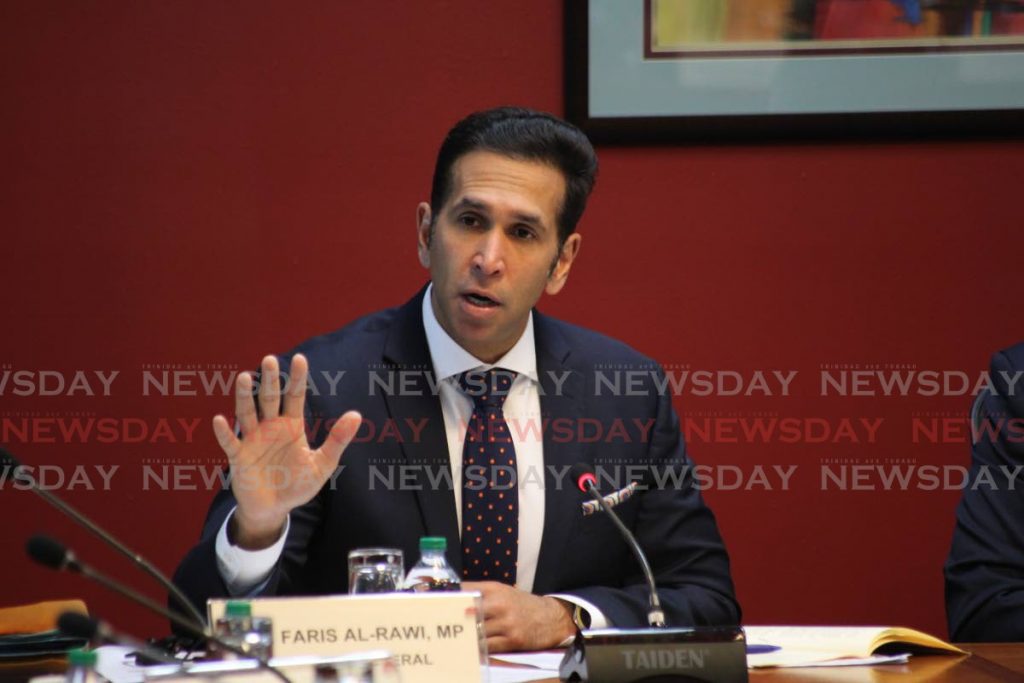Two children benefit from new ganja law

TWO Tobago boys, who were both remanded in Trinidad since September on simple marijuana possession charges, were expected to be released in Tobago on $500 bail on Friday.
This was part of the process of determining exactly who is entitled to have their charges discontinued in keeping with amendments to the Dangerous Drugs Act. The amendments decriminalised certain quantities of the herb.
The boys were identified by the Registrar of the High Court as being eligible. Petitions for their discharge were made by lead attorney for the Attorney General, Fyard Hosein, SC, at the hearing of an application filed by Attorney General Faris Al-Rawi on Monday to speed up the process to grant pardons to those who would benefit from the new law.
Justice Norton Jack, who is hearing the application, chose not to discharge the boys, but instead reduced their bail to $500 each and have their parents, or a suitable person, stand as surety so that they could be immediately released from prison.
In agreeing to grant the reduced bail sum, the judge said the two, when their matters come back up in court, can apply to have their matters discharged, in keeping with the provisions of the amended legislation.
“If I do as the State is suggesting, I’d be doing so in a vacuum,” he said, adding that the court needed to be careful not to set a precedent of discharging a defendant notwithstanding its authority to do so.
“The more prudent approach would be to release these children to ensure that they will no longer be in custody. They then can avail themselves to the discharge process,” he said.
As part of the judge’s order for the reduction of bail for the two boys, one of whom was charged with possession with ten grammes and the other with 19 grammes, Jack also ordered that they should immediately be transported from Trinidad to Tobago.
The two had been granted bail of $5,000 and $7,500 respectively by the Children’s Court, but their parents were unable to travel to Trinidad to sign their bonds.
The judge was told the information relating to those adults on remand who also stood to benefit from the new amendments was still being finalised.
Hosein and attorney John Heath, who represents the registrar, confirmed that the lists should be ready by next Friday, in time for the next hearing on January 6.
AG pleased
Speaking to Newsday by telephone, AG Al-Rawi said having the children’s release was “more than worth” the application filed by his office, so far.
“I am literally celebrating the fact that the most vulnerable in the process, the children, are being liberated as the first order of priority.”
He also said the latest declaration granted by the judge was a massive step forward to ensuring that the pardon process was fast-tracked not only for children, but also for adults on remand and unable to access bail for small amounts of marijuana.
“All the authorities are working overtime to get the information,” Al-Rawi said, adding that getting the information from the Children’s Court was faster because the system there was fully computerised.
The AG again said the application by the State, which has never been done before, was to ensure not only that people walk free but that they are able to clear their names and the stigma attached to having been either charged or convicted of having small amounts of marijuana, particularly children.
Al-Rawi also reminded that the State had the liberty to apply to have those who benefited from the new law discharged by the court so that they can receive a pardon.
This, he explained, will negate each individual having to do so themselves.
US Embassy's statement
Although the process now engaging the court will seek to have people’s records erased, and their fingerprints removed from the national fingerprint database, in accordance with sections 5 and 5D of the amended act, the United States Embassy has issued an advisory to visa applicants.
In a statement, the embassy’s public affairs section said the adoption of the Dangerous Drugs (Amendment) Bill 2019 into TT law “does not exempt persons with expunged convictions from disclosing such information on visa applications.”
The statement explained, “Under US immigration law, visa applicants who have ever been convicted or arrested for any offence, including drug-related offences, still must disclose that information to US officials when they apply for a US visa.
“Prior arrests and convictions, even if expunged, could still indicate visa ineligibilities. Failure to reveal arrests or convictions could lead to visa ineligibilities,” the statement added.


Comments
"Two children benefit from new ganja law"